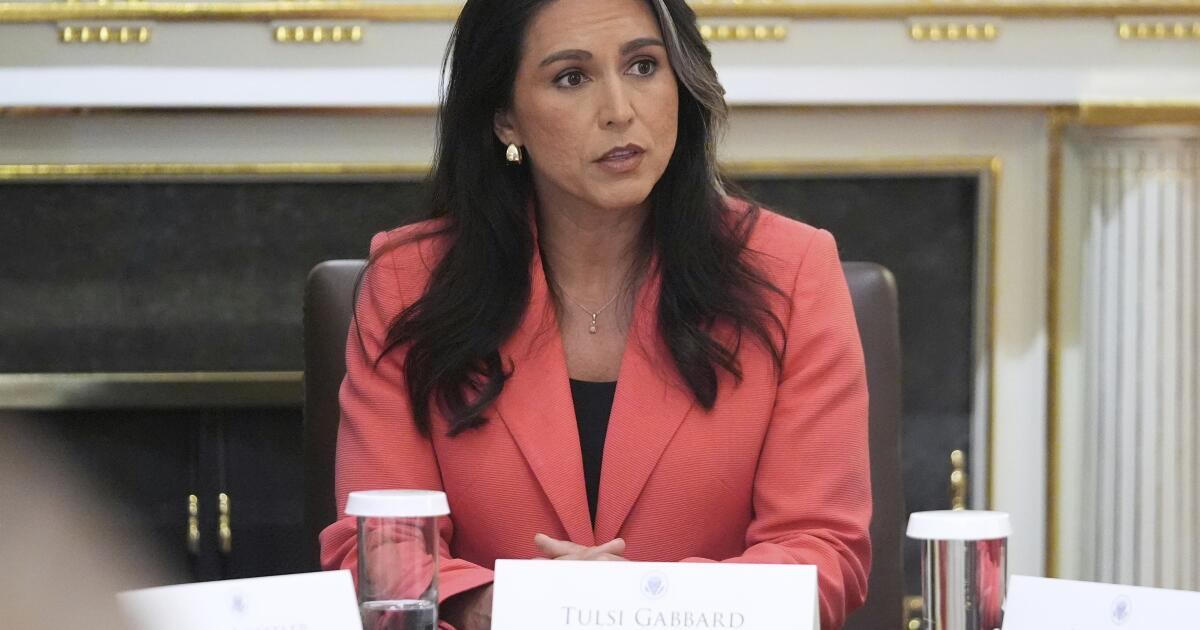U.S. national intelligence director is silent on Venezuela operation
WASHINGTON — Director of National Intelligence Tulsi Gabbard had yet to weigh in on the U.S. operation to remove Nicolás Maduro from power in Caracas as of Saturday night, more than 24 hours since President Trump approved the audacious mission that captured the Venezuelan leader.
Her silence on the operation surprised some in the U.S. intelligence community, which laid the groundwork for the mission over several months, and which had assets in harm’s way on the ground in Venezuela as the operation unfolded.
CIA Director John Ratcliffe, by contrast, accompanied Trump in Mar-a-Lago throughout the night as the extraction was underway, and stood beside the president as he conducted a news conference announcing the results.
“Teamwork at its finest,” Ratcliffe wrote on social media, posted alongside photos of him with the president’s team in the temporary situation room set up at Trump’s Florida estate.
Gabbard, a native of Hawaii who, according to her X account, spent the holidays in her home state, made a name for herself as a member of Congress campaigning against “regime change wars,” particularly the U.S. war in Iraq that toppled Saddam Hussein.
In a speech at Turning Point USA’s annual conference last month, Gabbard criticized “warmongers” in the “deep state” of the intelligence community she leads trying to thwart Trump’s efforts to broker peace between Russia and Ukraine.
“Too often we, the American people, are told we must choose between liberty or security, and which side often wins out in that proposition,” she told the gathered crowd. “Liberty loses, and the warmongers claim that they are doing what they are doing for the sake of our security. It’s a lie.”
Outside of government, during Trump’s first term, Gabbard also criticized advocates for regime change in Venezuela, writing in 2019, “It’s about the oil … again.”
“The United States needs to stay out of Venezuela,” Gabbard wrote at the time. “Let the Venezuelan people determine their future.
“We don’t want other countries to choose our leaders,” she added, “so we have to stop trying to choose theirs.”
